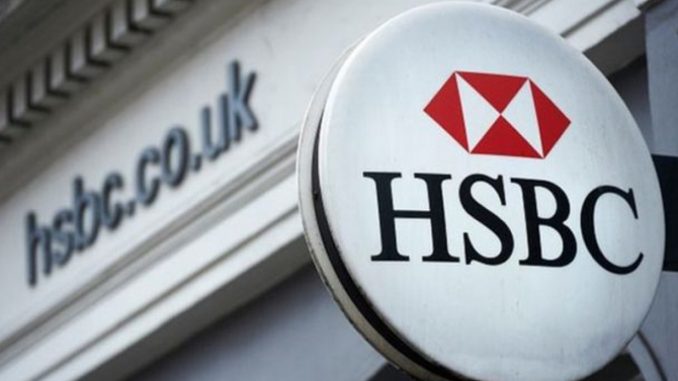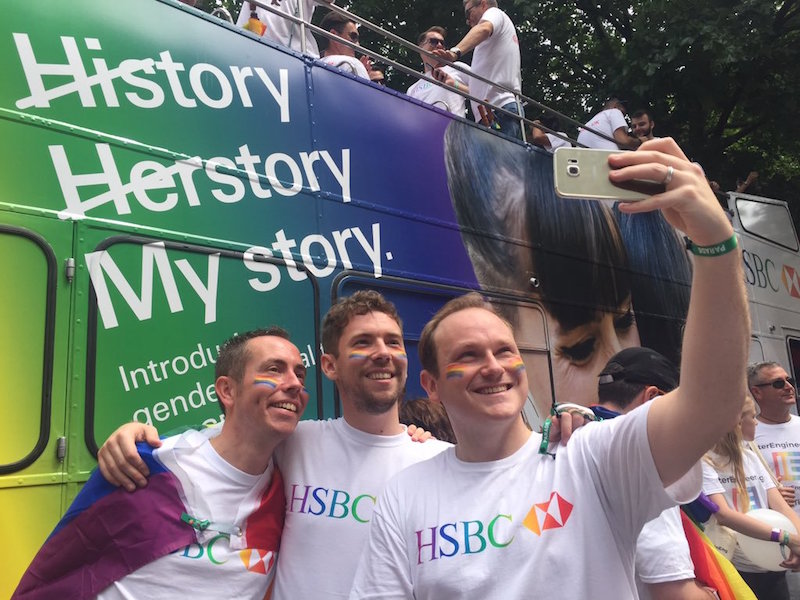
Stuart Barette, a transgender man, could be the first transgender at HSBC according to the website Verdict last November 2, 2017
Barette, openly trans man working as Global CMB IT Application & Infrastructure Streamlining Manager at HSBC, has been with the company for 26 years and started to transition just four years ago.
Named as the number one on OUTstanding’s Future Leader’s list for his efforts toward helping transgender have better banking experience, he exclaimed positively when the possibility of him being the head of the company was brought up in the interview.
“Well, that would be nice! I think I’m a couple of years away from that possibility just yet, but that would be great,” Barette said. “But I think I might have a fight for that role! I’ve got a few other trans colleagues who are gunning for it too! The thing is, I know I can do whatever I put my mind to.”
According to Barette, change can start with understanding the issues that the trans community face.
“I don’t think it’s just a case of ‘oh we’d like them to stand up for us a bit more’ … (people try) to stand up for trans people, but I don’t think they always know what the issues are and what they can do to help us. If we can find a better way of helping them to help us… they can understand how better to help us,” he said.

LGBT work at HSBC
At Barette’s urging, HSBC had made significant changes that cater to the needs of the transgender community such as providing a choice of ten gender neutral titles for customers and easy account management in changing their gender on their bank account
Barette also stated that due to hormone treatment, the voice of transgender people change and this can cause difficulties when doing some banking processes. That led him to introduce changes in voice biometrics.
“One of the issues that trans people face in being able to access banking is when they call in the contact centres; if their voice doesn’t match for some reason they get pushed through all the anti-fraud systems, which is obviously not ideal. So our voice biometrics actually knows it’s them… The trans community are already having a tough time in banking so we wanted to make sure that when we introduced this it was fully working and no problem for them,” he explained.
On his personal life, he shared, “I’ve known I was transgender for a number of years. I first realised when I worked for the bank over in Ireland, but we weren’t ready to make that change. So I decided I’d keep it on the downlow and four and half years I had some changes in my life, I moved back to my native Jersey, and I decided now’s the time!”
He was open about his gender identity at his workplace, having spoken to his line manager and colleagues, but soon found out that existing company guidelines were inadequate for his situation.
“It was about managing it as a change, just like any other change. New system, new procedures; a member of staff getting married and changing their name etc.,” he said. “And then as I went through that, I realised that although we had policies we didn’t have a detailed guide on how to transition in the workplace.”
Making trans issues clear to other people was key to implementing much-needed change in the workplace. Together with his line manager and the team for diversity and inclusion, they came up with guidelines for trans employees, colleagues and line manager.
“I realised that our ally network is such a positive force for us, so if they could understand the issues that we face, they could help,” he explained. “Some branch staff didn’t know all the things they could have done in order to be able to support our LGBT customers fully. So I created some training for them. My local branches in Jersey have been our guinea pigs for pretty much everything! If it works for them we roll out to the UK and then Europe and then the rest of the world.”

LGBT work in the community
He soon found himself extending his LGBT work to the larger community. He ran a support call for trans people on the topic of employment that at first started at HSBC and then expanded to 45 different companies.
“Some in the UK joined and before we knew it, it was global… It’s especially good for people in more remote locations so they don’t feel so isolated, we can support them with coming out,” he said. He mentioned about the diversity of people who joined and who are at various stages of transitioning and those who are non-binary. “I link people up to be able to get mentoring opportunities.”
He had since worked to connect people with people from other companies in local area, attended and invited as speaker in trans events in Europe, and held fund-raising activities for trans charities.
On top of that, he is also Trans Lead of HSBC Pride, a group of LGBT+ employees.
Barette also shared that corporations like HSBC can lead in making the change for trans workers all over the world. While lobbying governments that companies are located in may not always be feasible, these changes can be initiated by focusing on things that are within their control.
Believing in domino effect, he explained, “People from the bank understand the values we have. They embrace those values. If all those people go home and talk to their families about those values, and their families talk to their friends, it’s a domino effect where small changes will start changing things the world. I think that’s one of the more low-key things we’re doing, rather than taking on large religions or governments.”
In countries with conservative societies, his initiatives involved pushing for workplace changes to improve the situation of transgender workers in low key manner.
“In countries that are not as supportive, we make sure that the people have training, and we make sure that the systems are in place, but we don’t do a big marketing campaign around it or make a big deal of telling people,” he said. “They keep up with the things that are going so I frequently get emails from people all over the world… There’s lots of places you can sign post people to help them.”

Working as an openly transgender person
When asked whether allowing employees to be open about their gender identities can lead to a better workplace, he answered affirmatively, “I’m not having to use energy up pretending to be someone that I’m not. I can just be me, which means I’ve got more energy to be able to just focus on doing my job.”
He also noticed the difference of privileges that men and women receive upon his transition. “Why are we offering these additional privileges to men? It doesn’t make any sense. We should all be working cohesively.”
“And understanding the differences about how men and women approach the same situation is important. So yes, transitioning has made me better at what I do, but not necessarily for reasons I could have foreseen,” he further explained on the benefits of diversity. “Ask those people for advice, what things cause problems, and then fix those things.”
Transgender in the workplace
Of the 100 companies that comprise the Financial Times Stock Exchange (FTSE) and listed on the London Stock Exchange, there are no openly gay LGBT CEOs. Elsewhere, however, there are several trans individuals as heads of large corporations.
Martine Rothblatt, the highest paid female CEO in the US, is the top honcho of United Therapeutics.
Currently, there are no exact number on the members of the transgender community. Consequently, it is unknown how many of them are in the workforce.
Additionally, transgender individuals who are able to openly live the gender identity that they identify with are in the minority.
A Stonewall study revealed that 42 percent of trans people in UK fear that their employment might be threatened should they live according to their preferred gender role. It also found out that 10 percent have suffered harassment in the workplace and 6 percent reported that bullying could spiral into physical harassment.
In popular culture, TV shows such as Orange is the New Black and Transparent help build awareness on the issues that transgender people struggle with.



Be the first to comment